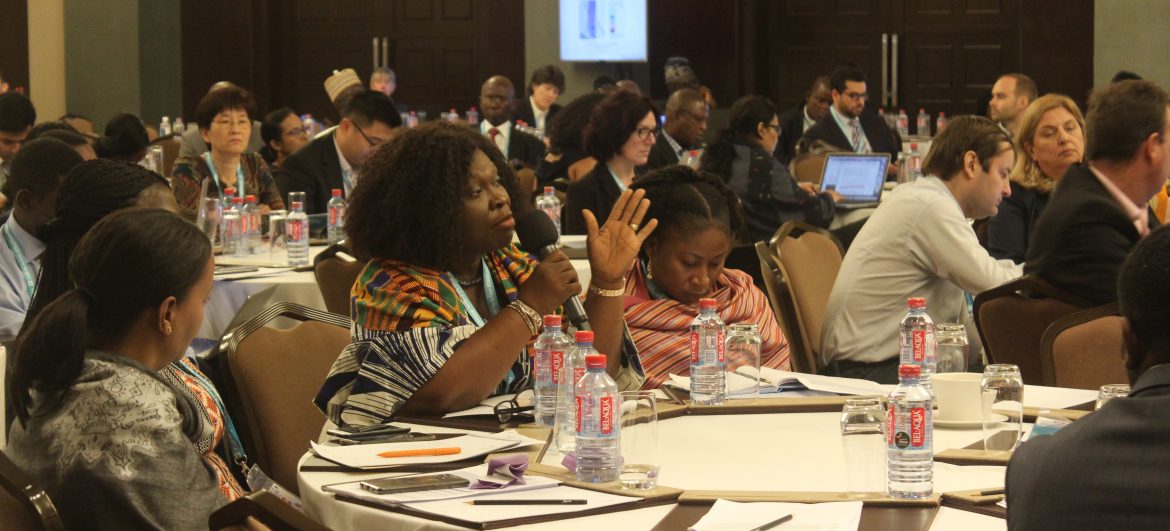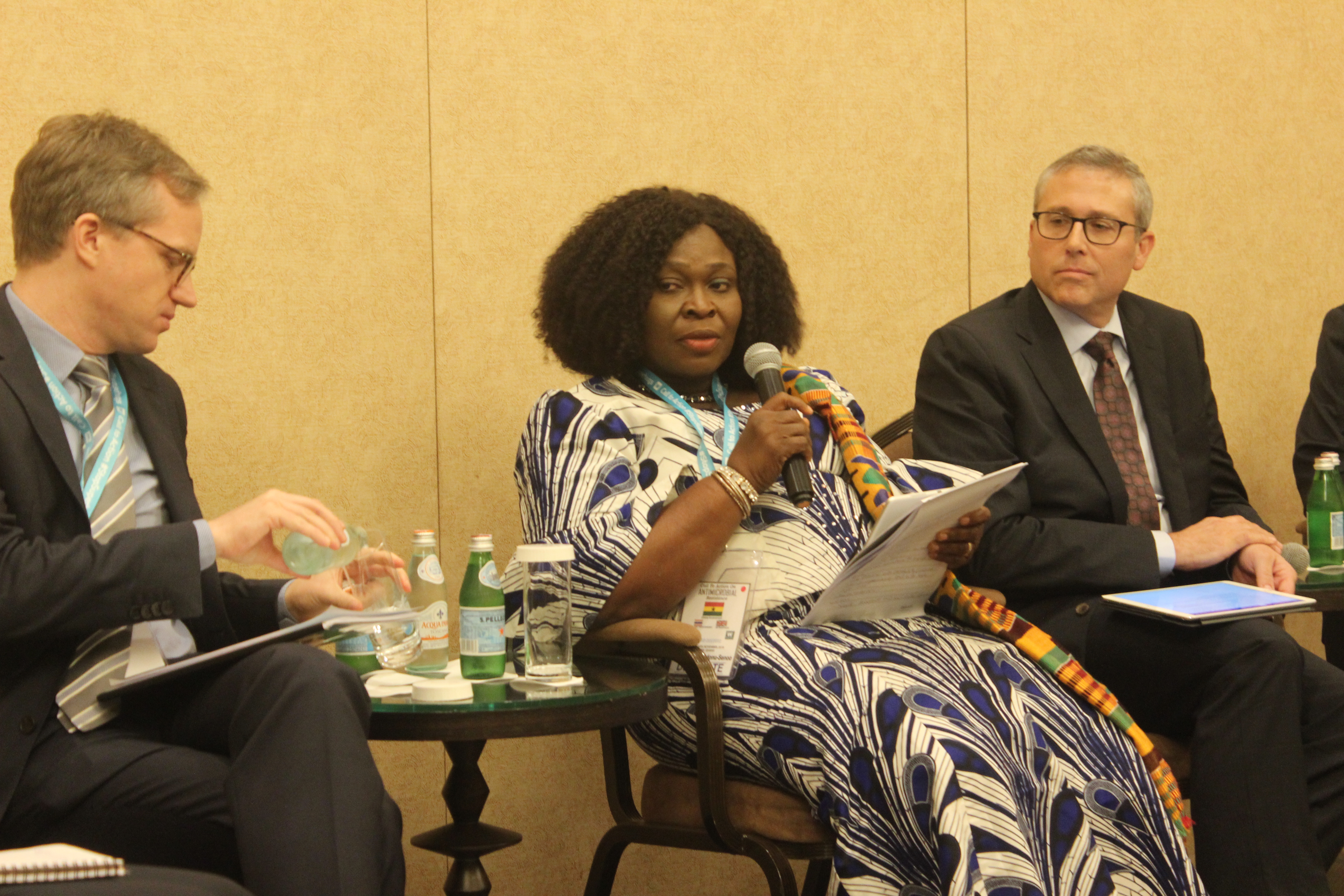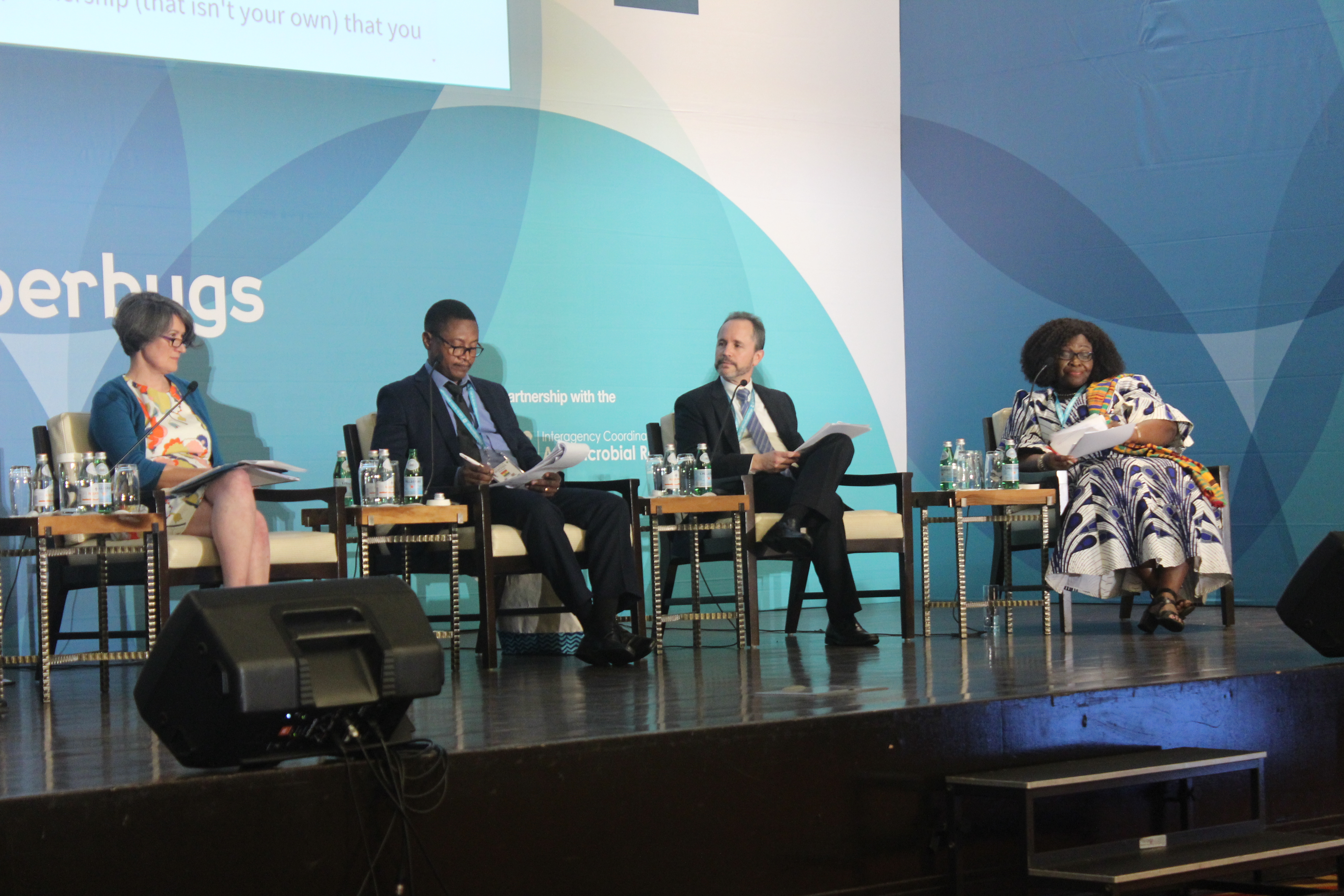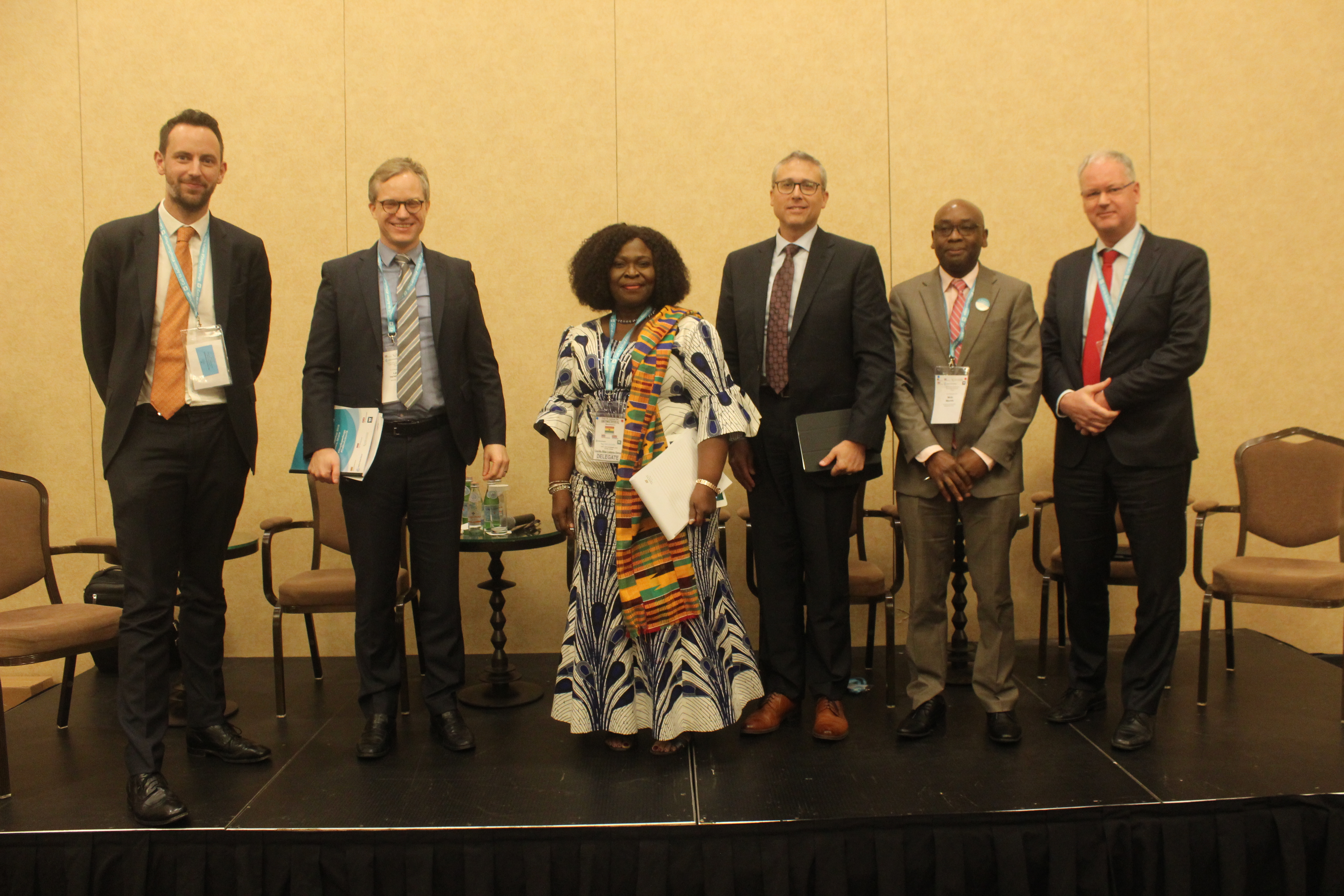Quis autem velum iure reprehe nderit. Lorem ipsum dolor sit nulla or narjusto laoreet onse ctetur adipisci.
Quis autem velum iure reprehe nderit. Lorem ipsum dolor sit nulla or narjusto laoreet onse ctetur adipisci.

Global Antimicrobial Resistance Dialogue
The Executive Director of Hope for Future Generations, Cecilia Senu was part of a panel at a two-day Call to Action on Antimicrobial Resistance (AMR) in Accra, Ghana that examined the role of private sector and civil society organizations in ensuring that national AMR Action Plans are effectively implemented.
The panel which was moderated by Ed Whiting- Director of Policy and Chief of Staff, Wellcome Trust- also had on it representatives from McKinsey & Company, Johnson & Johnson, World Health Organisation and ReAct Africa.
Sharing some Ghanaian best practices on how civil society had played a critical role in the drafting and implementation of the country’s action plan, Mrs. Senu described how effective partnership with government institutions like the Ministry of Health has been with civil society organizations but urged them to do more to contribute to a stronger and more coordinated national response to antimicrobial resistance.
The November 19-20 2018 event held at the Kempinski Hotel was co-hosted with the governments of Ghana, Thailand and the United Kingdom, and the United Nations Foundation. The Call to Action was organized in partnership with the Inter-Agency Coordination Group (IACG) on Antimicrobial Resistance.
Health representatives from national governments and agencies, civil society, the private sector and global philanthropies at this event deliberated on how to address the most critical gaps in tackling the development and spread of drug-resistant infections while forging continued momentum to create more opportunities for sustained action on drug-resistant infection.
Organizations like Hope for Future Generations (HFFG), Johnson and Johnson, ReAct Group, WaterAid, Food and Agric Organisation (FAO) and Path showcased, through panels and exhibitions, some of the best practices in tackling AMR particularly in low- and middle-income countries. This inspired policymakers, the private sector, civil society and other actors within the AMR space to identify how replicable and scalable those best practice can form the foundations of a successful, coordinated global response.




38 Comments Found
Lodonu Anthony Basil Says:
February 12, 2019 05:39:55Wonderful work and engagements for the same cause, the wellbeing of future generations in Ghana. Not simple but DO NOT GIVE UP!!!